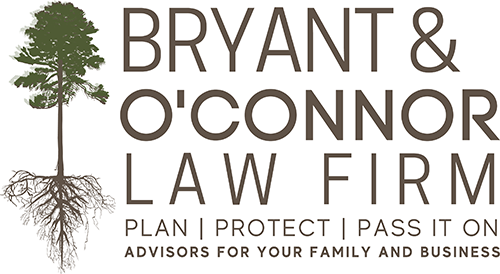Many people believe that the simplest way to pass on property to loved ones is to directly give it to them while they’re alive. It certainly seems like a simple and cheap way to estate plan, but direct gifting is often more expensive than a formal plan designed to avoid the pitfalls identified below. While gifting family heirlooms to an intended love one is probably meaningful enough to justify doing it while you’re alive, there are big disadvantages to giving away money, real estate, and appreciating assets. While the gesture is generous and seemingly straightforward, it carries potential drawbacks that can negatively impact you and your loved ones. Let’s dive into why direct property gifts may not always be the most favorable route.
- Loss of Cost Basis Advantage
Firstly, one must consider the issue of capital gains taxes. When you gift property, the recipient inherits your cost basis, or the original value you paid for the property. Should your child decide to sell the property, they are obliged to pay capital gains tax on the difference between the selling price and your original cost basis. On the other hand, an inherited property sees a “step-up” in the cost basis to the property’s market value at the time of death, potentially saving your heirs a considerable amount in capital gains tax. I have seen direct gifting cost beneficiaries tens or hundreds of thousands of dollars in taxes that they would not have had to pay had the asset passed on their loved one’s death.
- Impact on Medicaid Eligibility
Another consideration, particularly for older adults, is how gifting property can affect Medicaid eligibility. Transferring property within five years of applying for Medicaid can result in a penalty period, rendering you ineligible for benefits. This could have grave repercussions if you require long-term care. Owning some assets, like your home, will not make you ineligible for Medicaid, but giving it away at the wrong time could bite you and make you ineligible. Again, gifting without professional advice can backfire.
- Inflexibility in Face of Future Unknowns
Gifting property without any strings locks in a decision that might not prove beneficial in the face of unexpected future events. Your child’s financial circumstances could change due to job loss, bankruptcy, or divorce, putting the property at risk. Additionally, the value of the property could appreciate significantly, leading to higher property taxes that your child may not be equipped to handle. Also, what if your child dies before you do without doing their own estate plan, leaving the property to minor children who require court supervision?
- Loss of Control
Remember, when you gift a property, you also relinquish all control over it. Your child may decide to sell it, lease it, or they may even face a lien against it due to legal disputes or divorce. You cannot make your child or loved one use the money to help you, and unless it’s in an appropriate trust, you can’t even protect the money for your loved one.
- Deprivation of Estate Funds for Post-Death Expenses
Gifting a property while alive may also limit the financial flexibility of your estate after your death. The property’s value may be needed to cover debts, final expenses, taxes, or other estate costs. By gifting the property, the personal representative or executor of your estate could face difficulties in paying these expenses. A common issue I see is where real estate is in an estate or trust, but all of the money was given away while the decedent lived, leaving nothing for the personal representative (i.e., administrator, executor, or trustee) to upkeep the property or pay taxes. This sometimes results in distressed sales that limit the estate’s value to heirs.
- Uneven Advancements
If you have multiple children or beneficiaries, and you are trying to treat them all equally, you should know that gifts during life will not automatically be considered “advancements” that are reconciled between your children when your remaining property is divided after your death. If a given gift to a child is intended to come out of their share of a later inheritance, it must be documented clearly in your estate planning documents.
- Potential Tax Implications
Lastly, while the act of gifting may be rooted in benevolence, it’s not without potential tax implications. As of 2023, gifts of more than the annual exclusion limit of $17,000 are taxable. There is currently a fairly large unified gift and estate tax exclusion, meaning that many gifts above $17,000 won’t actually result in tax liability, but it’s important to document larger gifts and work with your CPA to prevent unexpected tax burdens.
At Bryant & O’Connor Law Firm, we understand that every family situation is unique and deserves personalized attention. If you’re contemplating a significant gift, we encourage you to reach out to us. If you like what we have to offer and engage us, we’ll work together to develop a strategy that does more to preserve your assets, protect your loved ones, and ensure your legacy is handled as you envision. An informed decision is the best decision!
Share this post with those who might find it helpful. And for more insights on legal, financial, and motivational topics, follow us on Facebook and Instagram or subscribe to our email newsletter.
The information in this blog post is intended for general informational purposes only and does not constitute professional legal or tax advice. Always consult a competent professional for any legal or tax matters.

